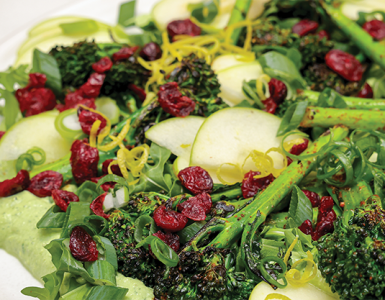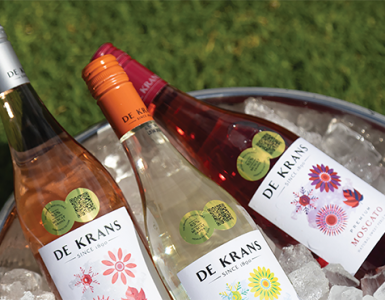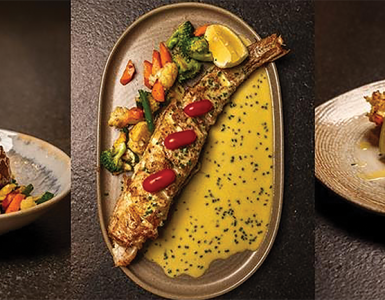CONTRIVED: The South African government has been accused of killing white farmers, including winery owners. More effort is needed to set the story straight, urges the writer of the article…
By Robert Joseph
“Robert, are you OK with killing all of the South African winery owners?”
This question from a Florida-based wine professional on LinkedIn stopped me in my tracks. How many other Americans – and non-Americans – I wondered, watched the televised encounter between Presidents Trump and Ramaphosa, and now believe that white South African grape-growers and winemakers are the target of government-sanctioned killings?
How many people across the globe are now discouraged from picking up a bottle of wine from Stellenbosch or booking a holiday in the Cape?
Anyone holding those views could be forgiven. After all, the US president presented various pieces of ‘evidence’ including photographs of mass graves and video clips of politicians calling for ‘Death to the Boer’.
There was nothing new in this. On February 7 2025, Trump issued a Presidential Action entitled “Addressing Egregious Actions of the Republic of South Africa” that referred to “hateful rhetoric and government actions fuelling disproportionate violence against racially disfavoured landowners.”
The government of South Africa’s “commission of rights violations in its country”, the Action claimed, was “undermining United States foreign policy, [and posing] national security threats to our Nation, our allies, our African partners, and our interests.” Aid and assistance to South Africa would cease forthwith and — unlike asylum-seekers from other nations — Afrikaner refugees escaping government-sponsored “race-based discrimination” would be welcomed to the US.
Two months later, South Africa was hit with 31% tariffs, among the highest of any country, though, as elsewhere, these were delayed till July 9.
During the White House meeting, the world-famous white South African billionaire and winery owner Johann Rupert, whose other business interests include Cartier, Dunhill and Shanghai Tang, respectfully did his best to set Trump straight. He acknowledged that his is a very violent country with problems that are exacerbated by illegal migrants, but he also pointed out that the politicians in the clips the President had shown represented minority parties, not the government.
If anyone would be a target for the kind of behaviour Trump had described, he, Rupert, would surely be the most obvious. But, he said, he often goes to bed without locking his door.
Having learned from the Trump-Zelensky meeting, neither Rupert nor Ramaphosa openly stated that the ‘evidence’ that had been presented with such a flourish was fake.
For that, the world had to wait for rigorous fact-checking by the likes of the BBC which pointed out that the “over a thousand” burial sites of white farmers apparently depicted in video footage shown by the president were part of a protest at the death of one couple in 2020.
Another image of “white farmers that are being buried” proved to be from a Reuters report, “about women being killed in the Democratic Republic of Congo”.
“Of South Africa’s 26 232 murders recorded by the South African Police Service (SAPS) last year,” the BBC went on to say, “just 44 were killings of people within the farming community and of those, eight were of farmers.”
The BBC fact checkers continued that, in other figures compiled by the Transvaal Agricultural Union from media reports, social media posts and reports from its members, last year there were 23 white people killed in farm attacks, and nine black people.
So far this year TAU has recorded three white and four black people killed on South African farms. Far from good news, but also far from genocide. By comparison, in 2023, there were around 50 ‘firearm-related’ deaths of children every week.
President Trump’s use of the term ‘genocide’ is also countered by human rights professor Dr Gregory Stanton, founder of Washington, DC-based Genocide Watch who was quoted in the Spectator as saying, “For all the tragedy of farm murders in South Africa, there is no evidence of a planned extermination”.
Stanton, who has been studying the situation in South Africa and elsewhere for over 25 years continued, “I’ve done research on the ground…. The numbers show us that white people, urban or rural, are much safer than their black counterparts, and less likely to end up on a slab at the coroner’s office… Farmers… are often vulnerable, isolated and easy targets, but that doesn’t make it genocide”.
South Africa has a vibrant, top-quality wine industry. It also boasts some of the finest examples of wine tourism in the world.
Wine professionals everywhere should join forces to help South African wine producers fight back against this disinformation.
I suggested to my LinkedIn correspondent that he take the time to read what the fact-checkers had said or, failing that (‘you can never trust mainstream news’), contact a few winemakers in the Cape to ask if they were planning to take advantage of the new US open-door migration scheme.
So, if you’re a producer in Stellenbosch, Paarl or Franschhoek, who gets a call from a confused Floridian wine professional, I’m the person to blame.
* Robert Joseph is the editor-in-chief of the international wine industry newsletter Meininger’s
EVENTS
STELLENBOSCH IN SOWETO
Johannesburg and Soweto wine lovers will be greatly spoilt for choice when a coterie of winemakers from the Stellenbosch Wine Routes host a wine tasting in Soweto on June 10.
The organisers promise an unparalleled celebration of culture and taste in the heart of Soweto, where the refined elegance of Stellenbosch’s wine tradition meets the vibrant soul of Soweto and Johannesburg.
This event marks the beginning of a long-term partnership, fostering a deeper appreciation for wine education, storytelling, and interactive tasting experiences over the next coming years. The venue is situated on 6893 Bhejane Street, Orlando West.
Stellenbosch, dubbed the “Cabernet Sauvignon Kingdom”, represents more than 200 estates which produce world-class wines.
Tickets cost R200 via Webtickets. The event starts at 6pm.
FRANSCHHOEK’S BASTILLE RETURNS
The annual Franschhoek Bastille Festival returns for its 30th edition to celebrate French heritage in a new location in July.
The iconic event, taking place on July 12 and 13, offers wine and cheese tastings, stalls, live entertainment, and a best-dressed competition.
Guests will receive a wine glass and 10 tasting tokens, with the option to explore “Uncorked Exclusive” for a more intimate wine experience. They will enjoy gourmet delights and street performances at the Food Fair and Celebration Square. Iconic Bastille tickets are for guests aged 18 and older. Dress in blue, white, and red.
This year, the event will unveil a brand-new location in the heart of the village – the Hospice parking area. The new location offers festival goers a refreshed setting in which to revel in one of the Cape’s most beloved winter traditions.
Bastille celebrates the valley’s French roots with its world-class hospitality, offering something for every palate and passion. Rhythm DiVine will feature funky French DJ beats incorporating live saxophone, violin, and percussion while Cape Town’s beloved band, Tuxedo, adds to the ambience with a powerhouse set-list of crowd favourites. Tickets, available via Webtickets, cost R390.
TROPHY WINE SHOW
The annual Trophy Wine Show Great Tasting, which involves sampling a trove of award-winning wines, returns to Sandton Convention Centre in Johannesburg on June 12.
Tickets to the event, which starts at 5pm and ends at 9pm, cost R350 via Webtickets. Expect around 150 award-winning wines (scoring 90 points and above) selected by international and local wine professionals.
Highlights at The Great Tasting include the Best White and Best Red Wines of Show, the International Judges’ trophy winner, Best Premium Wine, the Discovery of the Show (best value wine) and Investec Champion Winemaker of the Year.
Tickets are limited and include the sampling of all wines, a delicious deli snack (value R120) and the tasting glass to take home. Investec cardholders receive 20 percent on their ticket purchase. Limited PnP Smart Shopper cardholder discounted tickets are available on a first-come-first-served basis (two tickets for the price of one).
Klerksdorp Whisky Classic
North West whisky lovers should gear from a special treat when the visit The Whisky Classic show on May 31.
The organisers of the annual event have created a curated selection of whiskies and spirits from 12 world-class distilleries, featuring new releases, rare finds, and timeless classics
Guests will be pampered with fine labels of the drama against the backdrop of good music under the stars, accompanied by mouth-watering food and expertly crafted cocktails.
General Access tickets are R475 (buy one, get one free), include tastings on the main floor, whisky glass to take home, bottle of still water and tasting passport. Masterclass + General Access (Limited to 30 Guests) costs R800, includes general access, plus a private masterclass upstairs showcasing one of the world`s most prestigious distilleries.
Vaal Wine Expo
The Vaal Wine Route will host a day of wine tasting along the banks of the Vaal River in Vanderbiljpark on May 31.
The 22 and expo will present South African farms that will be showcasing top local wines to sip and savour plus to buy direct at cellar-door prices.
The venue is Stonehaven-on-Vaal, Rosebush Lane, Zuurfontein, Vanderbijlpark. The event starts at 12 noon. Tickets cost R300 a person.. – Compiled by Len Maseko
































